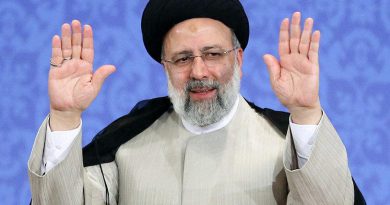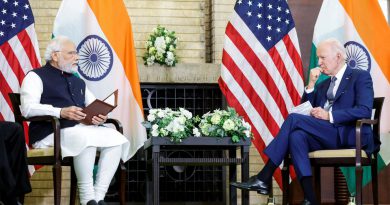What are the sources of financing terrorist groups by Iran?
by Cyrus Yaqubi
The mullahs, on the other hand, have no explanation to offer Iranian public opinion for such expenditures…
Mohammad Reza Naghdi, deputy coordinator of the IRGC, admitted that Iran has spent billions of dollars in the region over the past 30 years, in an interview with “Studio Negah Yek”, of the first channel of Iranian TV!
Of course, the IRGC’s budget and its financial aid to its allied forces in the region is not clear, but the main income of the IRGC, in addition to its dedicated official budget by the government, is provided from both domestic and foreign sources. The IRGC is currently involved in all economic and financial affairs in Iran and is the owner or shareholder of the largest commercial and economic sectors of the country, while it is exempt from paying taxes, and even the government does not supervise the IRGC’s financial affairs.
The IRGC controls several berths in the Persian Gulf ports and exports and imports from these berths without customs control, including oil, so nobody is aware of the IRGC’s revenue.
Recently, some Hezbollah and Hamas officials announced huge financial contributions from the IRGC to them. In his speech, Mohammad Reza Naghdi introduced these countries as Iran’s strategic depth in the region.
In this interview, he spoke about the readiness of the “regional militias” and stated that they have “done great deeds so far.” Of course, he did not comment on these “great deeds”, but it is clear the major bombings in Saudi Arabia, Iraq and even Argentina are among them.
Recently, Mahmoud Al-Zahar, a senior Hamas figure, announced that Iran’s financial aid was made by Qassem Soleimani, the commander of the Quds Force. Hezbollah leader, Hassan Nasrallah, also spoke about Iran’s financial aid and the role of Qassem Soleimani in delivering it.
Political groups close to Iran, in Lebanon and the Gaza Strip, occasionally refer to “abundant Iranian aid” to justify to their people the IRGC meddling in their countries, but their words become a problem for the mullahs’ regime when it reaches the Iranians.
Hassan Nasrallah said recently, to show the importance of Iran, in one of his speeches, “even our food and clothing money is provided by the Islamic Republic”; “As long as the Islamic Republic has money, we have money,” he said of the US sanctions on Lebanese banks. This kind of talk has caused the Iranians, the majority of whom live below the poverty line, to take to the streets to address the Iranian authorities with slogans such as “Leave Lebanon, think about us”.
The mullahs, on the other hand, have no explanation to offer Iranian public opinion for such expenditures and so resort to violently suppressing any protest.
Recently, the speeches of a representative of the Hamas government and the Secretary General of the Lebanese Hezbollah on the anniversary of the killing of Qassem Soleimani, the commander of the Quds Force, once again caused controversy.
In an interview, Mahmoud Al-Zahar said, “Qassem Soleimani had paid $ 22 million to Hamas.”
Al-Zahar, the former foreign minister and senior member of the Hamas leadership, told Al-Alam, Iran’s state-run Arabic-language network, on Sunday, December 27, 2020, “In 2006, I explained to Qassem Soleimani in Tehran, ‘the problem of staff salaries and social services and other assistances”, of the people of Gaza, “Haj Qassem immediately responded to our request, handing us $ 22 million in cash in several suitcases the next day when we left Tehran.”
According to Mohammad Javad Akbarin, a journalist writing in the Islamic Republic of Iran newspaper, Iran had given more than $ 6 million to Hamas just in the previous seven months before donating those suitcases full of money.
Hezbollah’s secretary general, Hassan Nasrallah, also said in a televised interview that Qassem Soleimani “behind the scenes and out of sight” provided significant financial assistance to certain Lebanese people in addition to providing missiles and military equipment.
In an interview with Al-Mayadin, Nasrallah said that, at that time “Iran’s financial situation was better than now, and oil prices were higher, and Soleimani gave the owners of 200,000 homes destroyed in the 33-day war with Israel, one-year rent and living expenses to rebuild their houses.”
The Chinese Xinhua news agency reported in May 2019 that Iran had distributed $ 651,000 to Palestinian families in Gaza during a Quds Day ceremony in Gaza.
According to Abu Eida, the head of the “Committee of Martyrs” in Gaza, the Islamic Republic provided $ 2 million to Hamas in November 2018 alone, which he said was “a small amount compared to previous years.”
These figures on Qassem Soleimani’s “aid” to Hamas and Hezbollah are published, while it is not clear what exactly is his or the IRGC’s source for such generosity!
Given that Iran, in addition to paying the salaries of its army and IRGC personnel, has spent a lot of money on industries, such as nuclear, missile and submarine, during these years, spends millions of dollars for the military presence of its forces in Iraq, Syria and Yemen and pays more millions of dollars to its proxy groups in various countries. Iran’s military budget does not appear to cover all these costs, and Qassem Soleimani may have used other informal sources of funding.
The Iranian regime, via its Quds Force, over the past forty years also gained influence over the Lebanese who emigrated to Latin America many years ago. This minority is accused of involvement in drug trafficking and money laundering.
The CIA claims that Latin America is one of the most important money laundering centers of the Quds Force and part of the proceeds of drug trafficking are transferred to Hezbollah.
Hezbollah of Lebanon also made news headlines for drug trafficking in Italy in recent times. Italian media reported a couple weeks ago that a shipment of more than $ 1 billion worth of amphetamine pills discovered in June 2020 belonged to Lebanese Hezbollah.
The US Treasury Department said in a statement eight years ago that it had obtained evidence that Gholamreza Baghbani, a senior commander in the Quds Force, was allowing Afghan smugglers to send their drugs across Iran to European countries. In return he used them to deliver weapons and ammunition to Taliban forces in Afghanistan.
It seems that the IRGC and its affiliated forces, including the Lebanese Hezbollah, despite their idealistic slogans, do not shy away from anything, and the income from this drug related work probably goes a long way towards the Quds Force being able to cover the massive expenses of its interventions in other countries.
Cyrus Yaqubi is a Research Analyst and Iranian Foreign Affairs Commentator investigating the social issues and economy of the middle east countries in general and Iran in particular.



